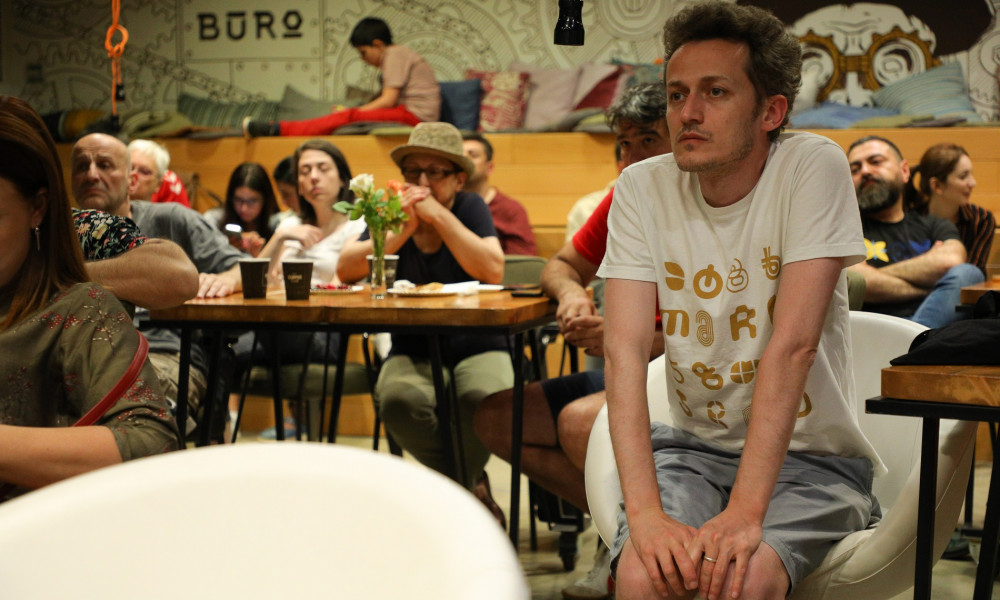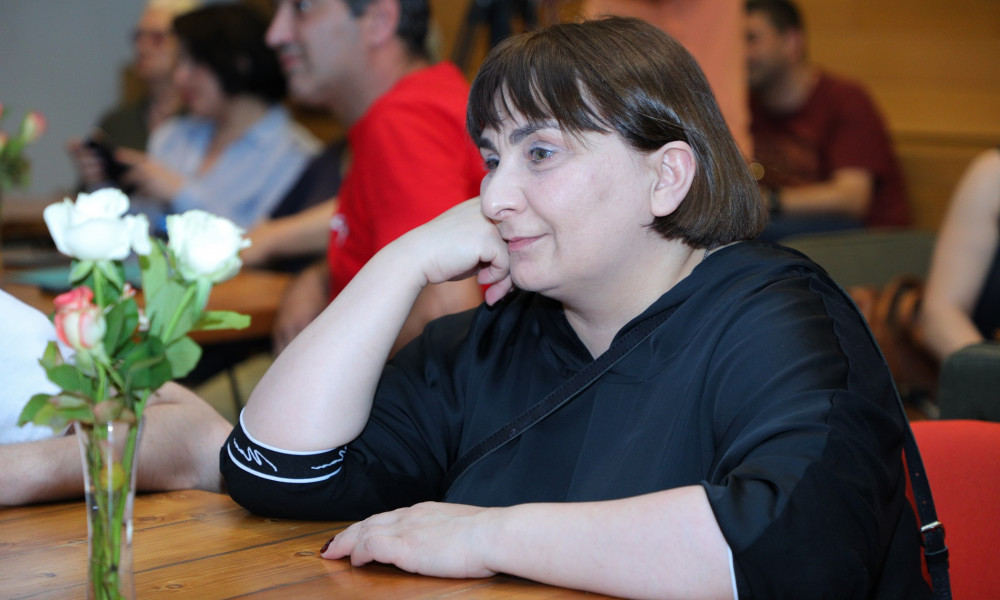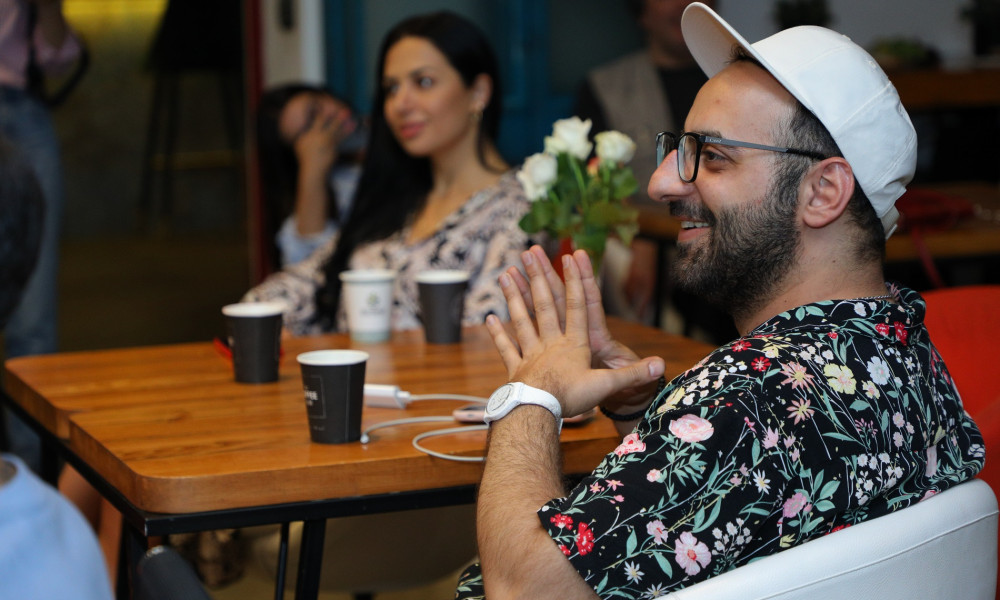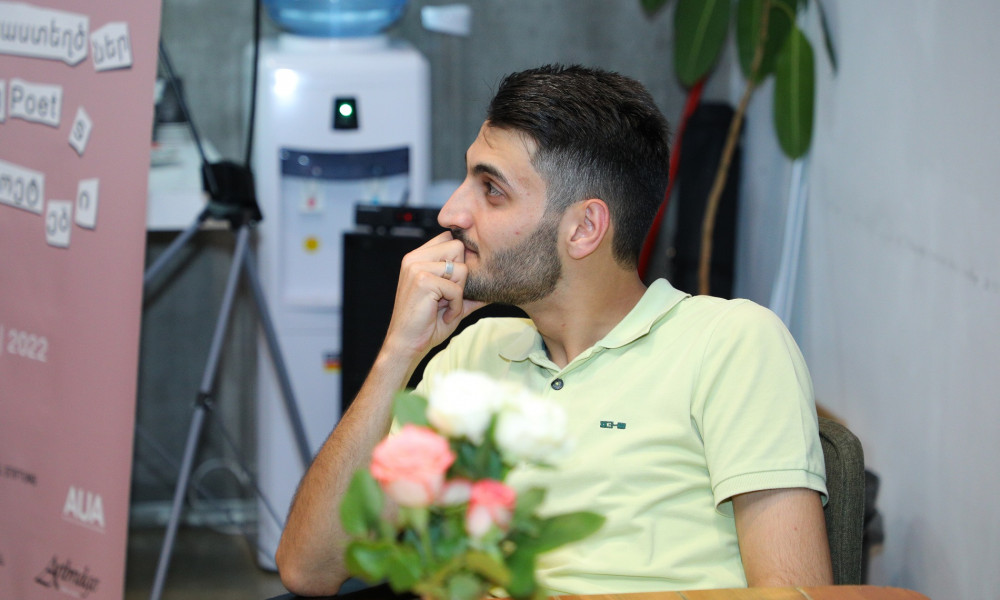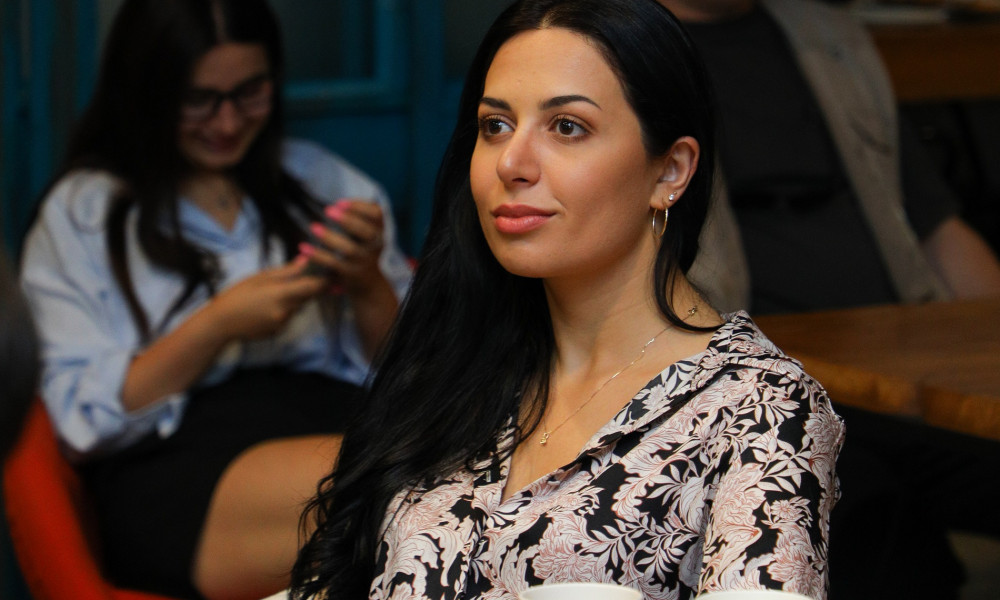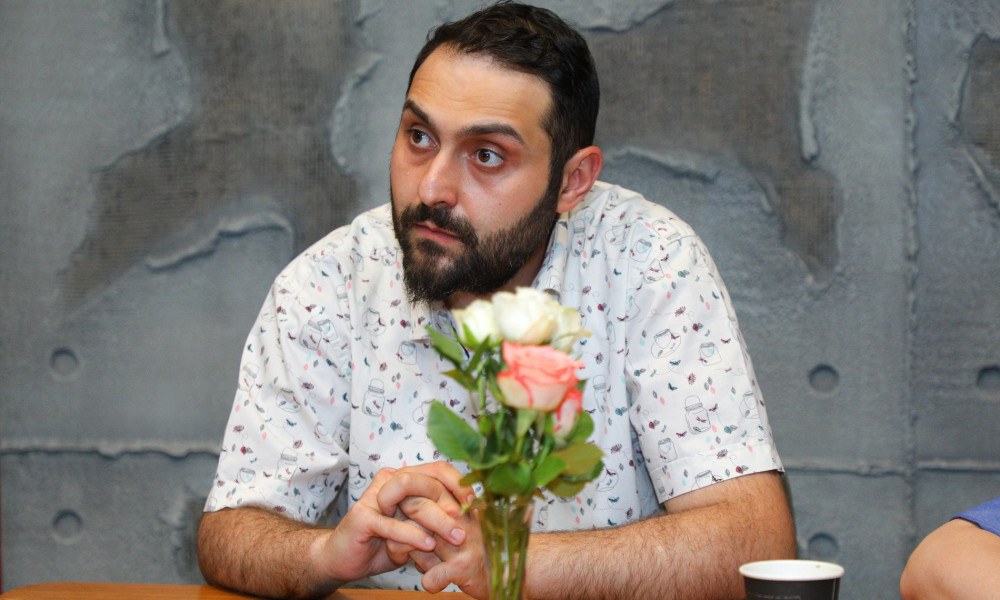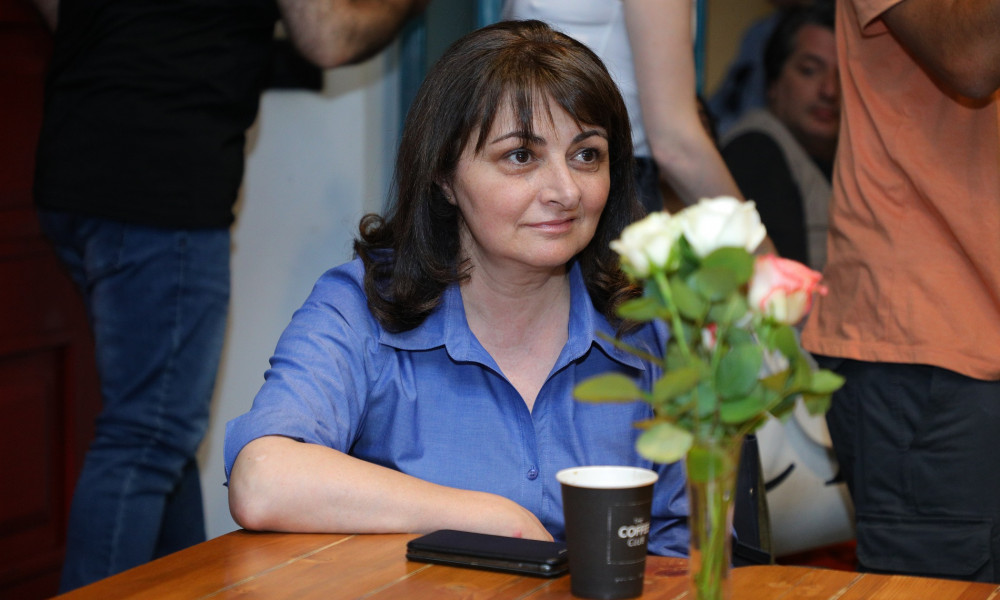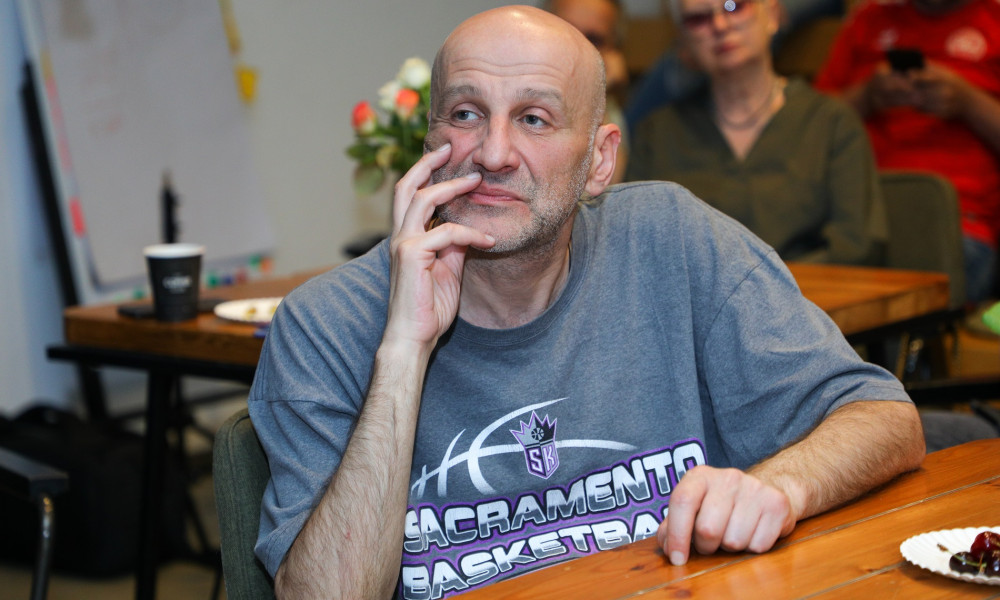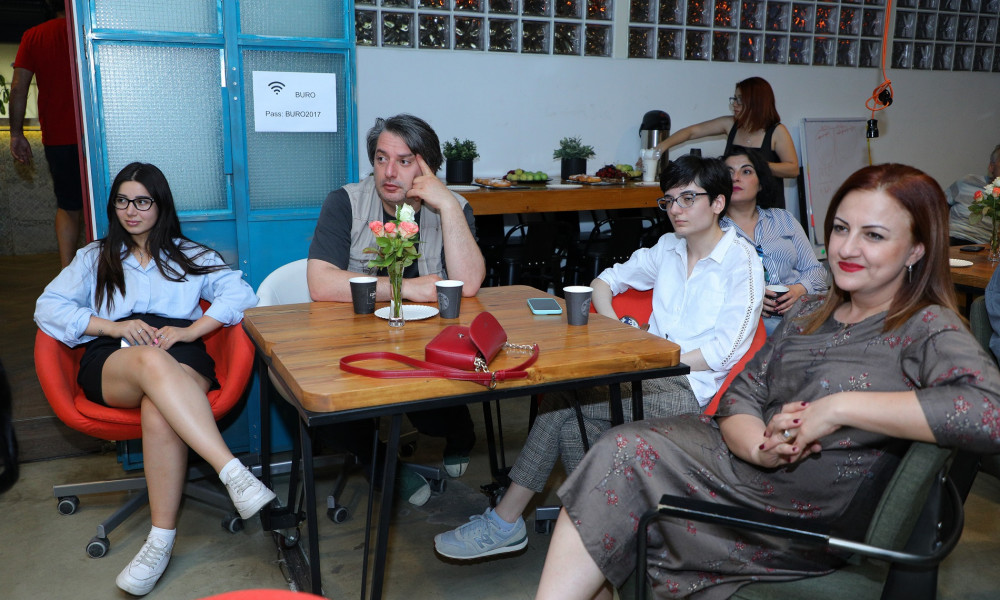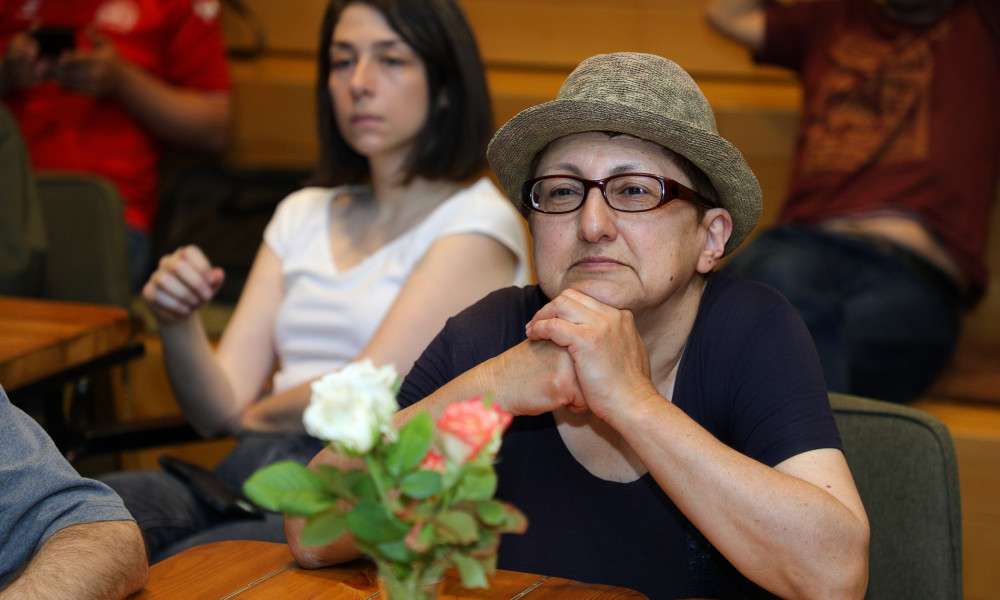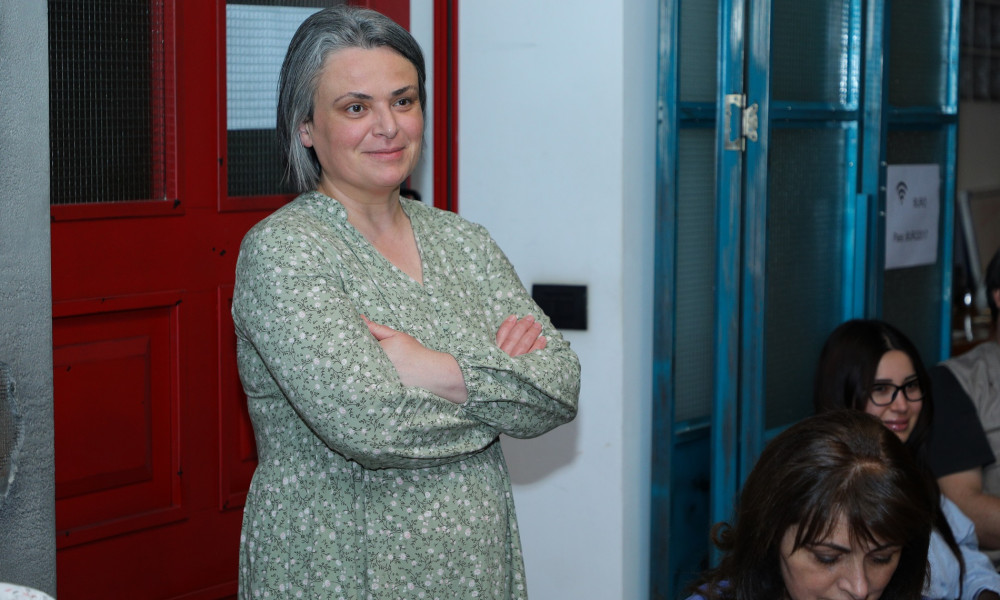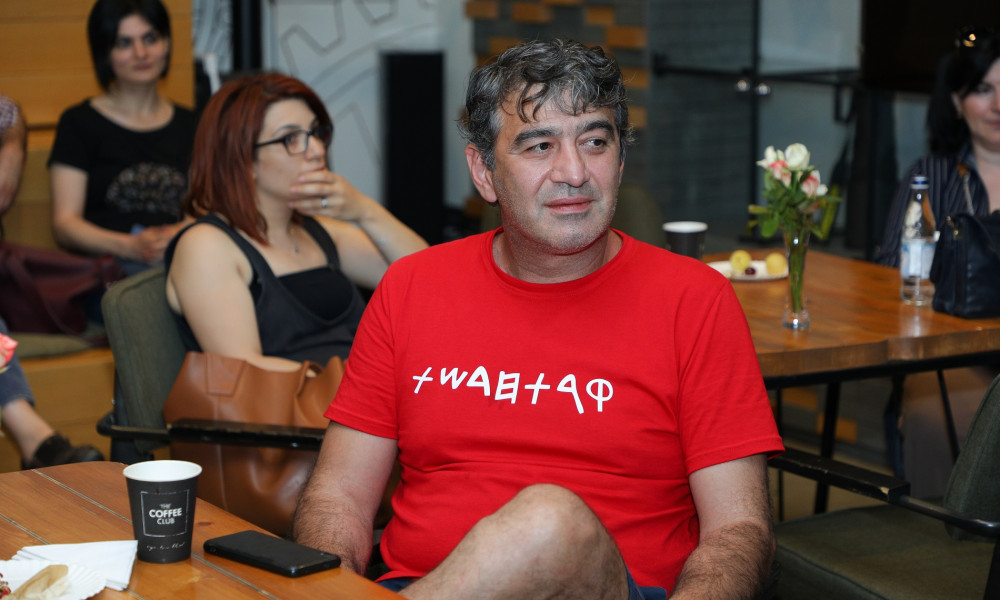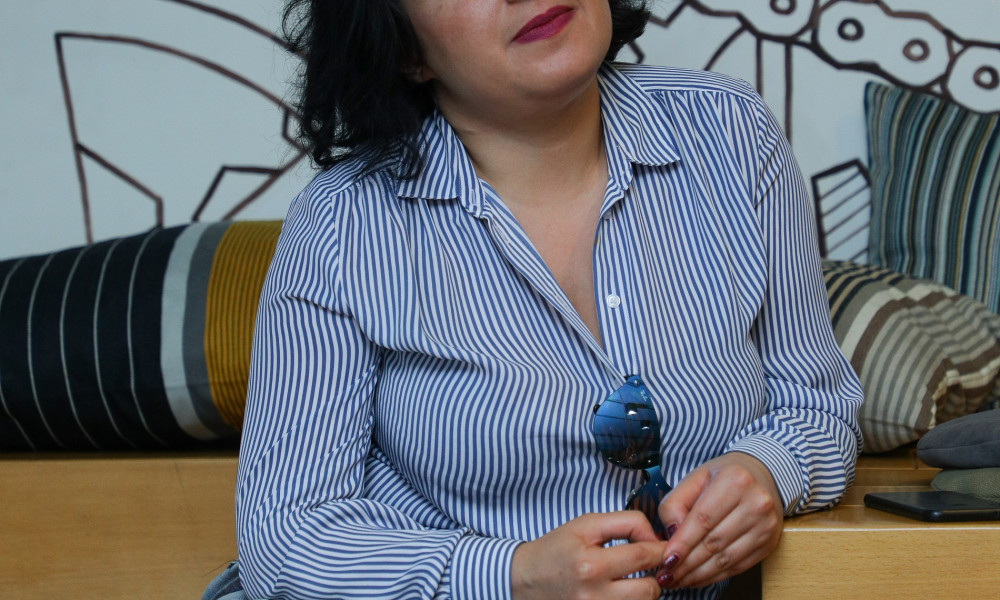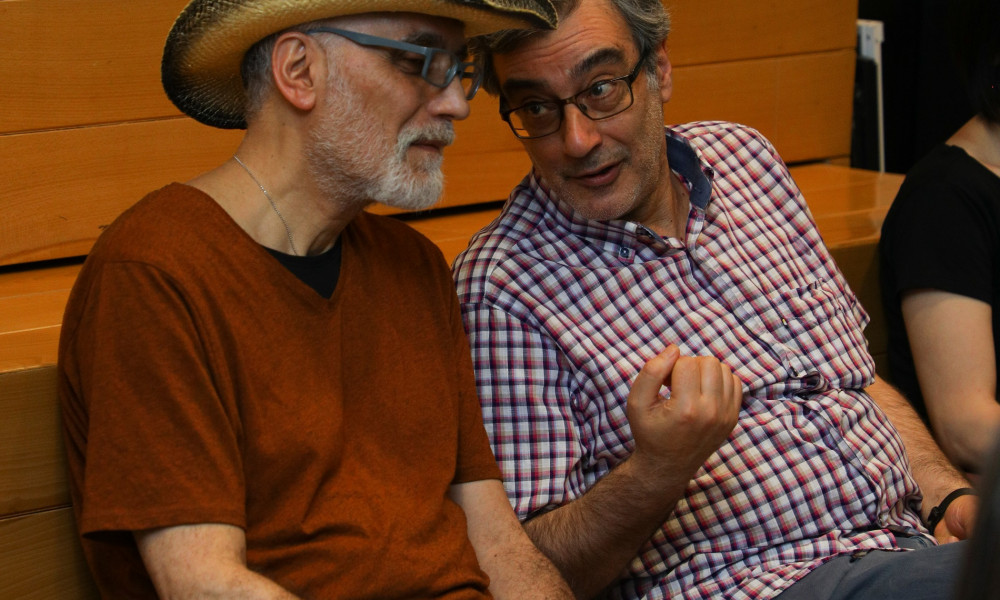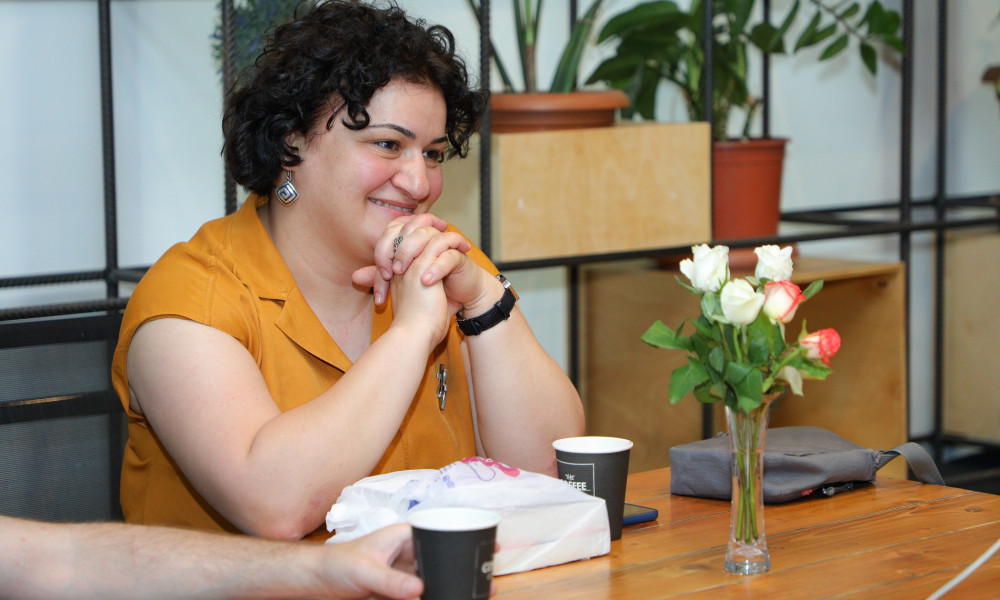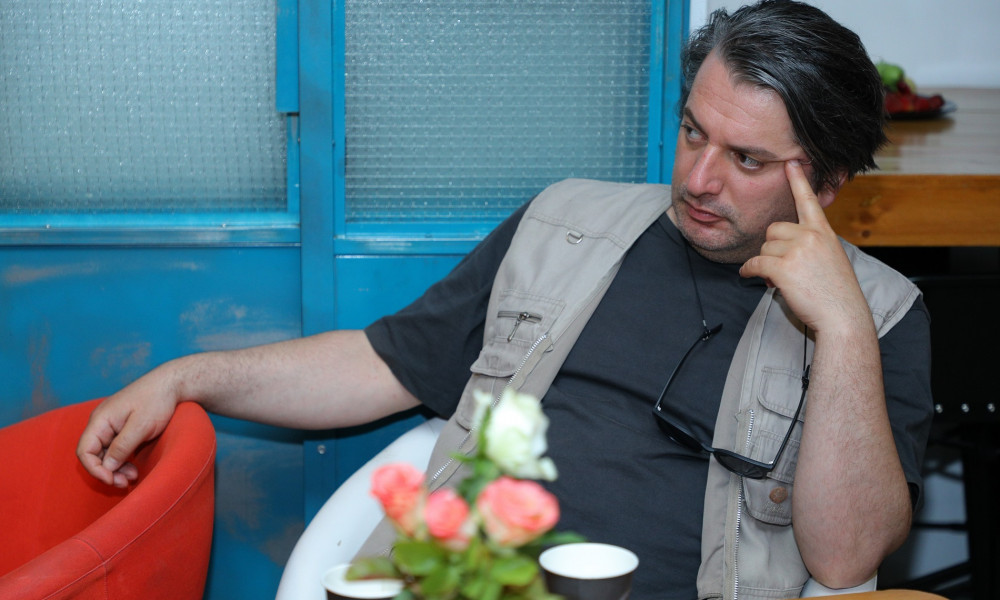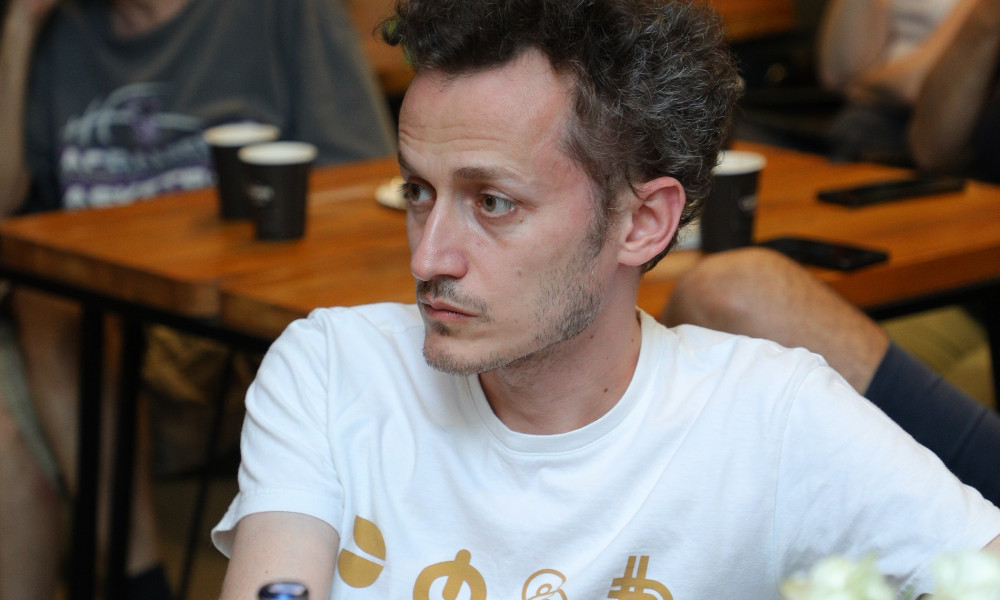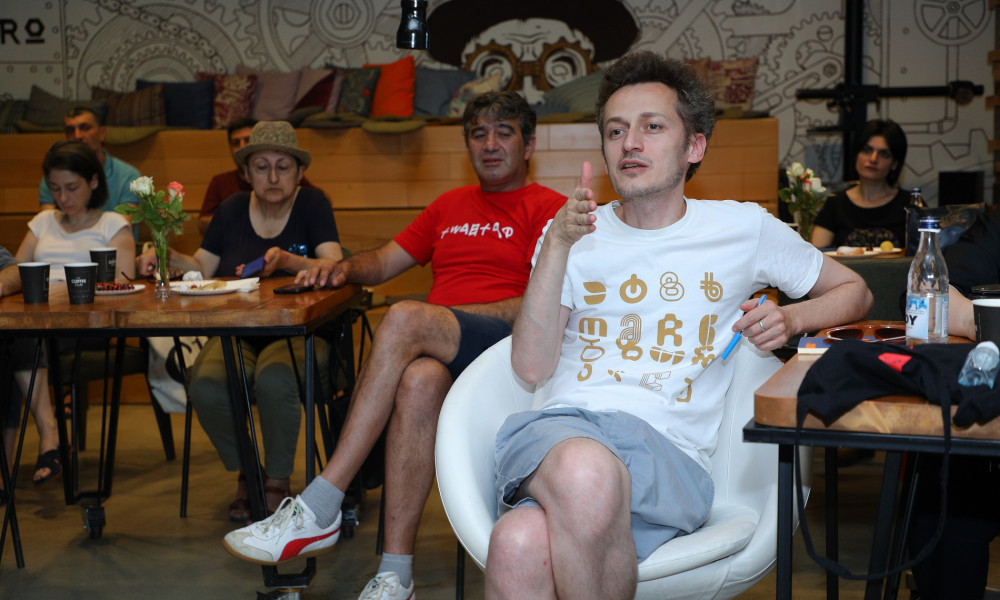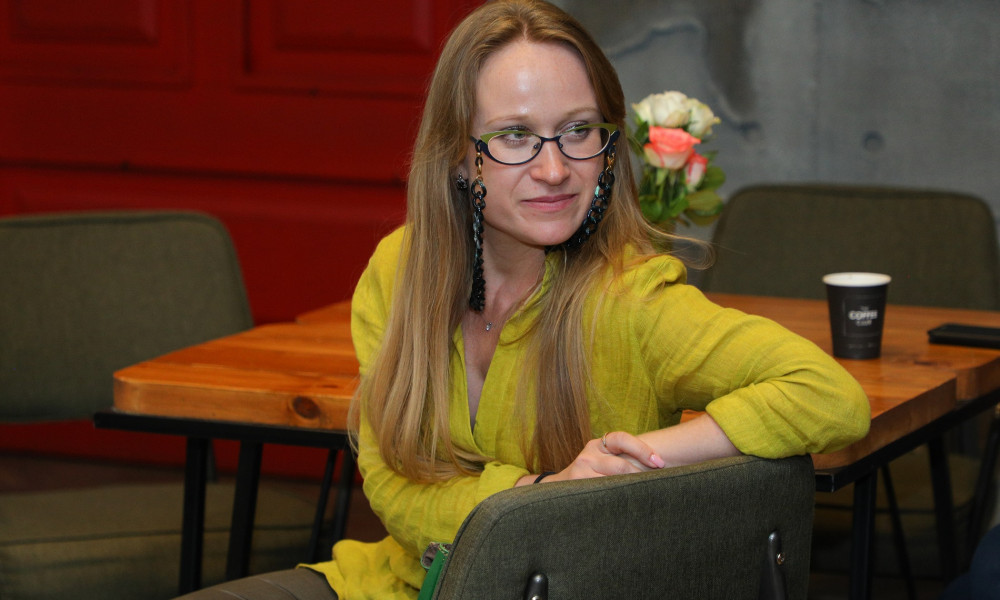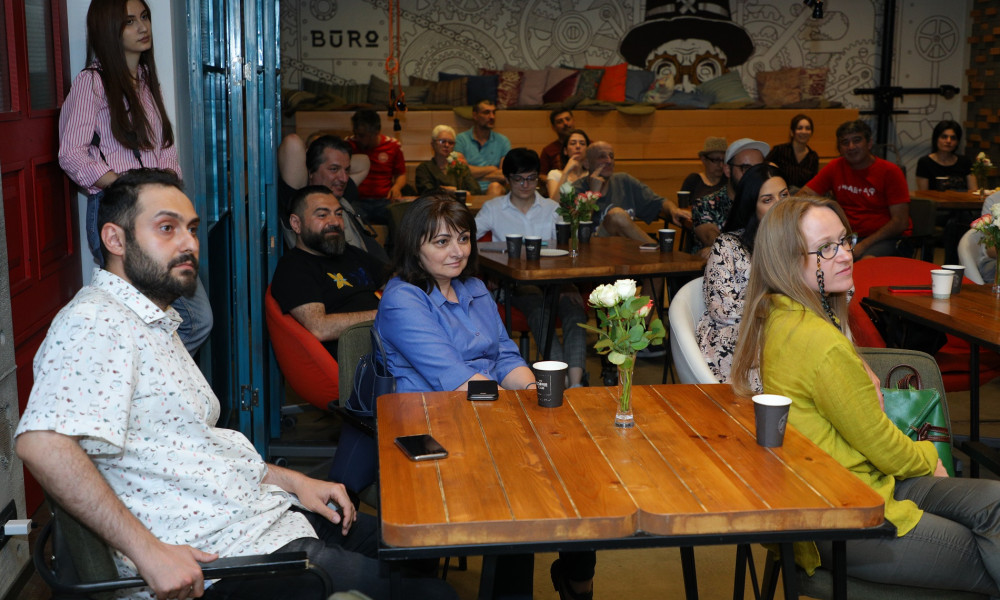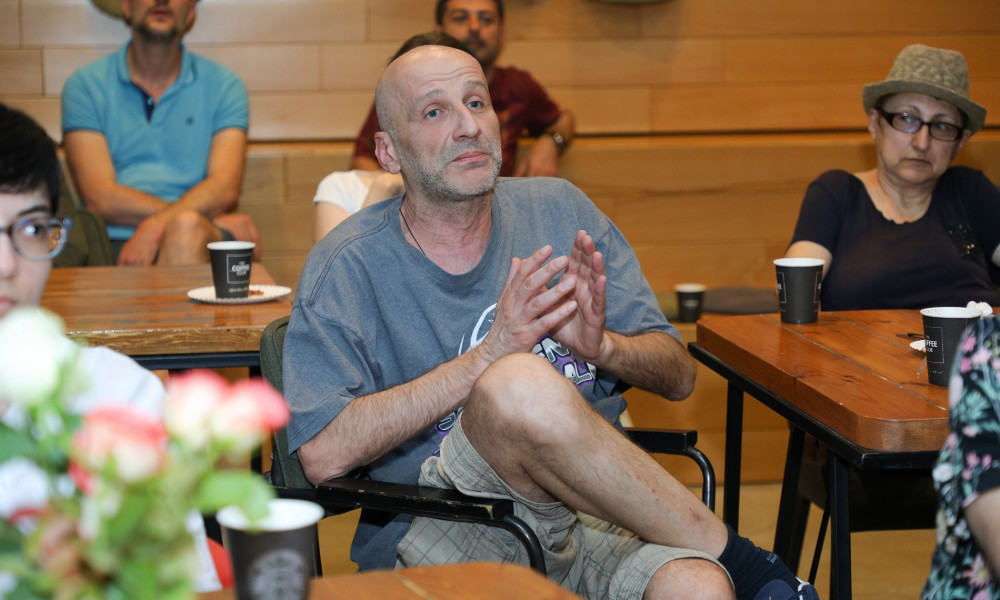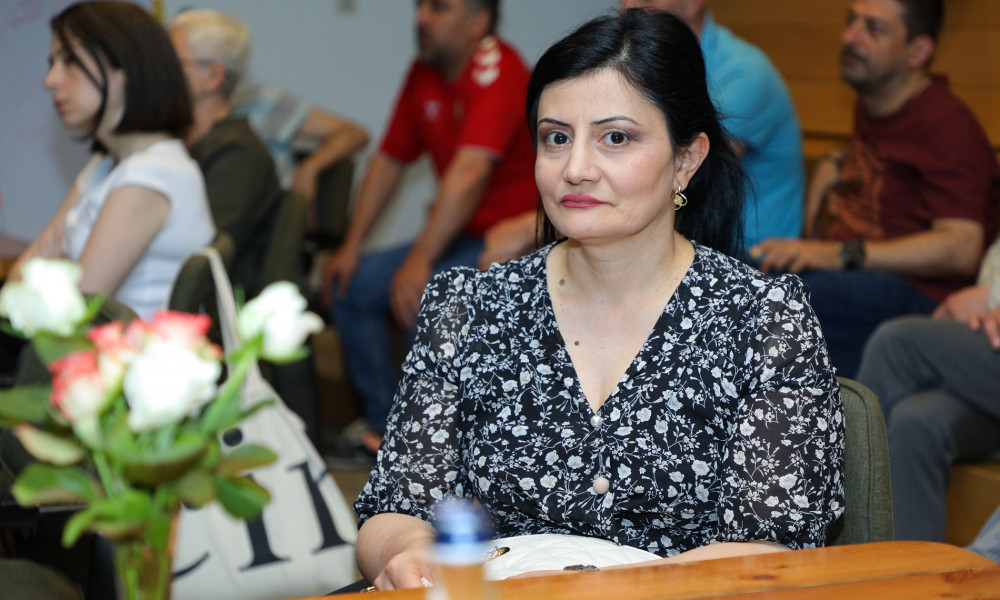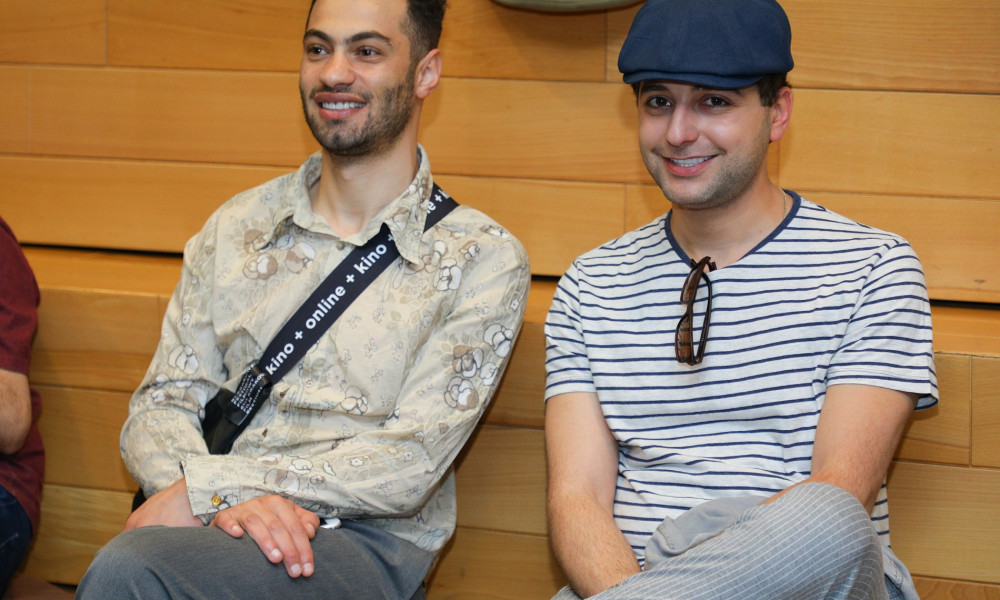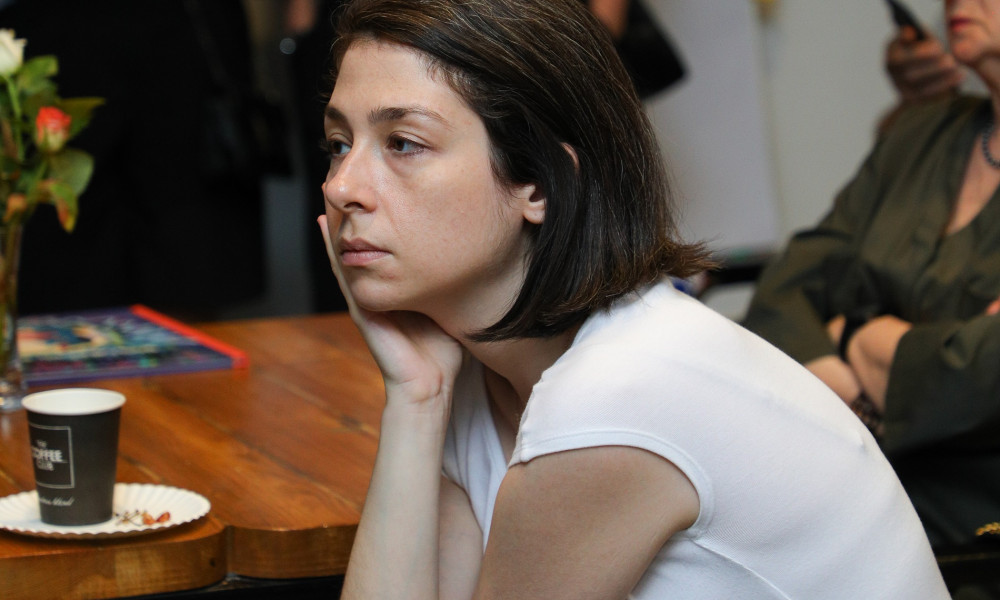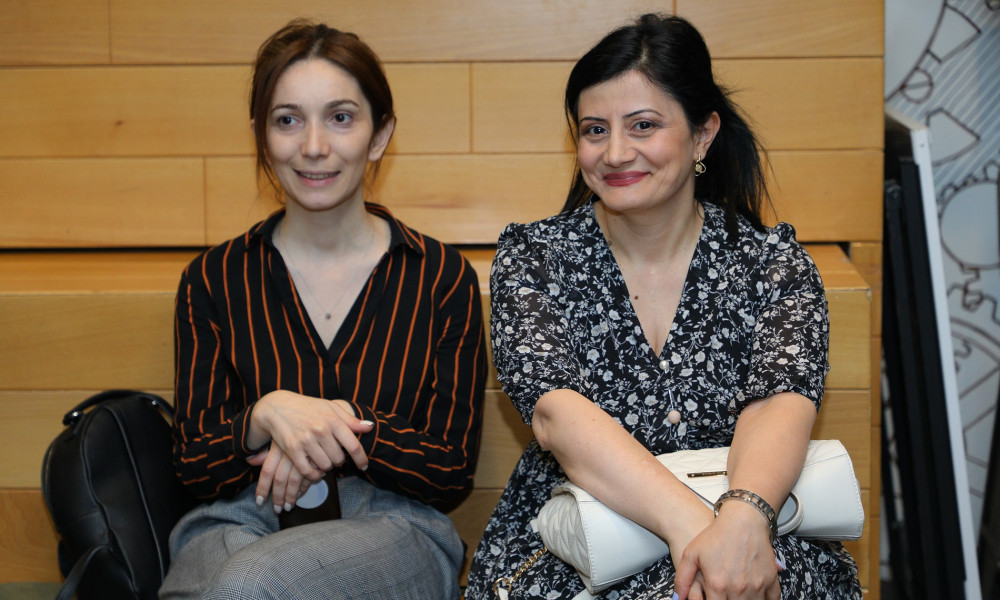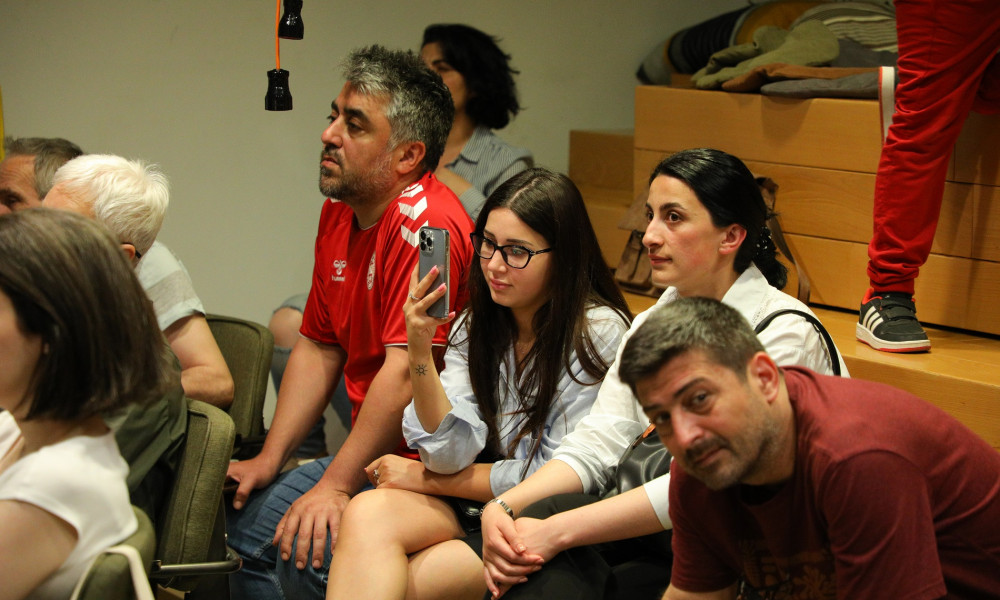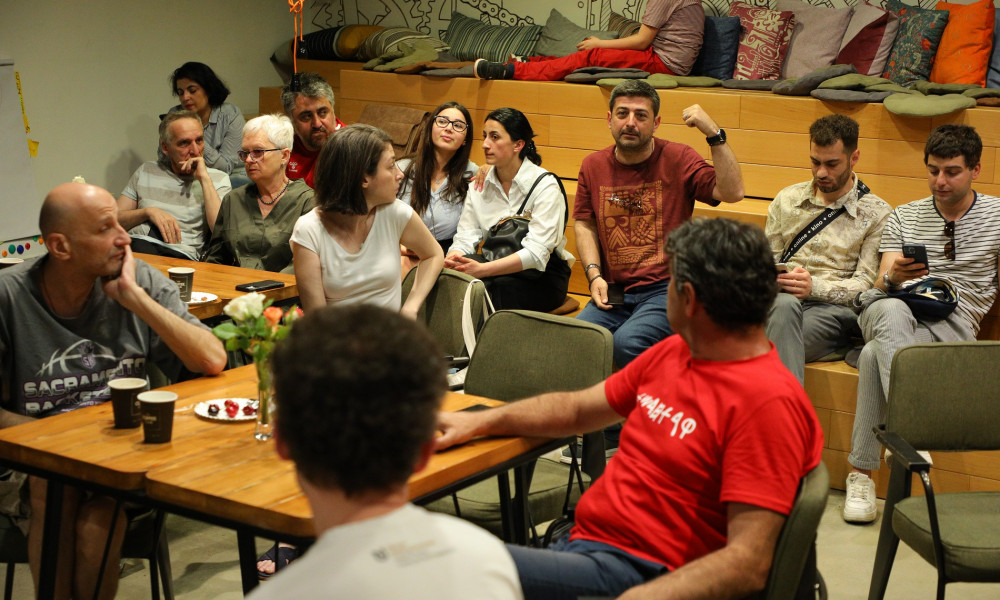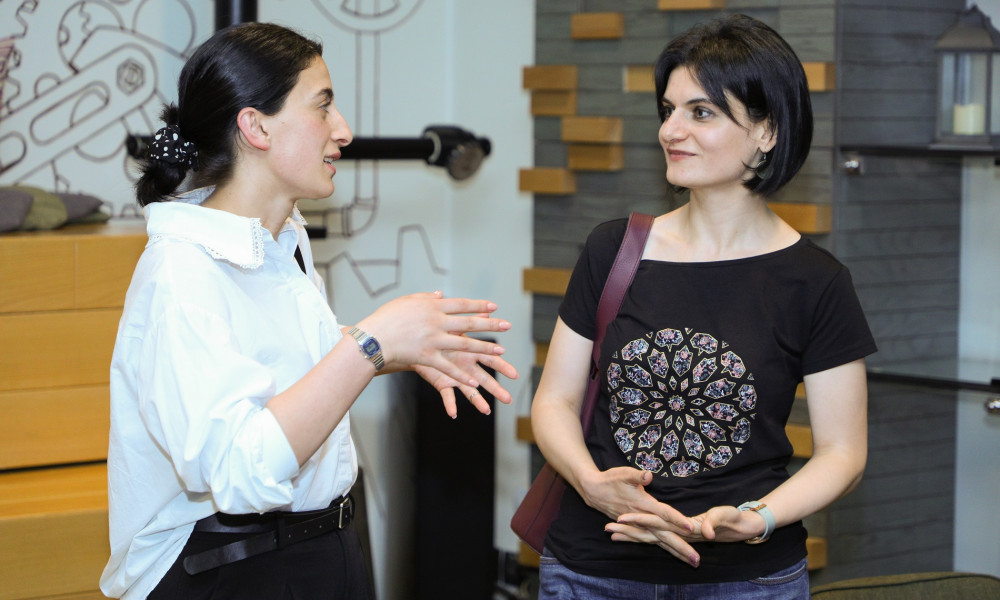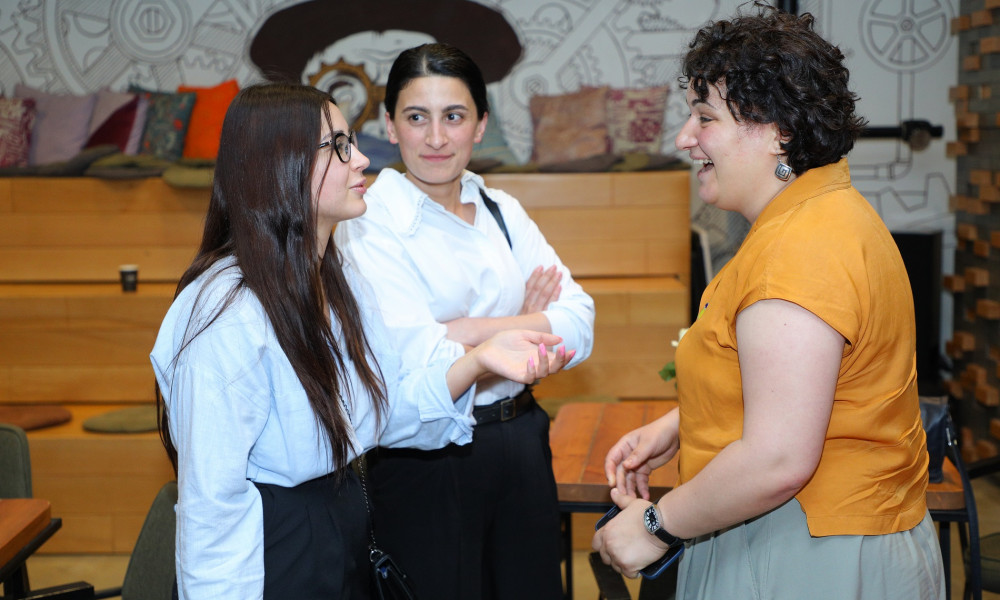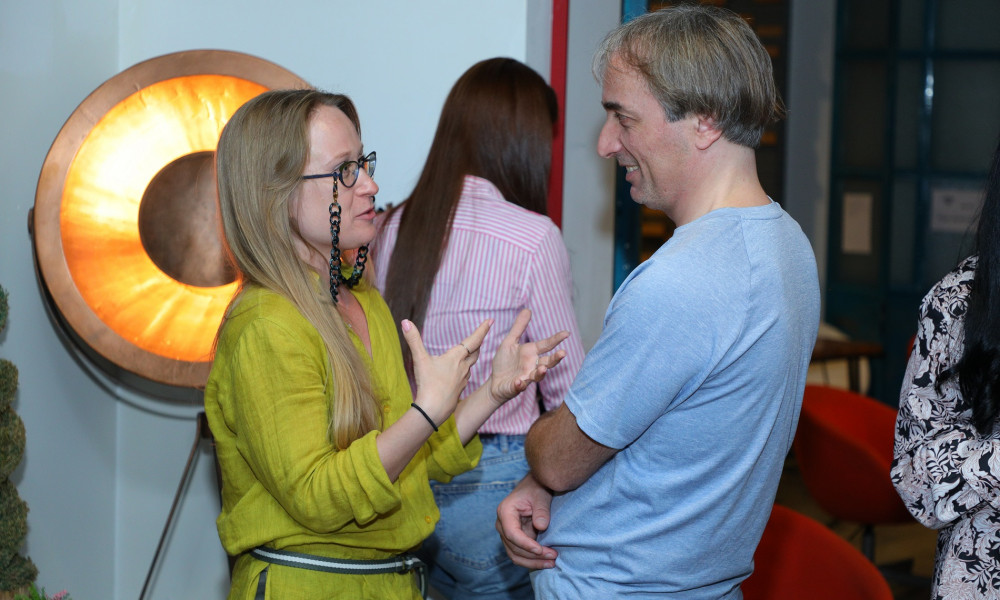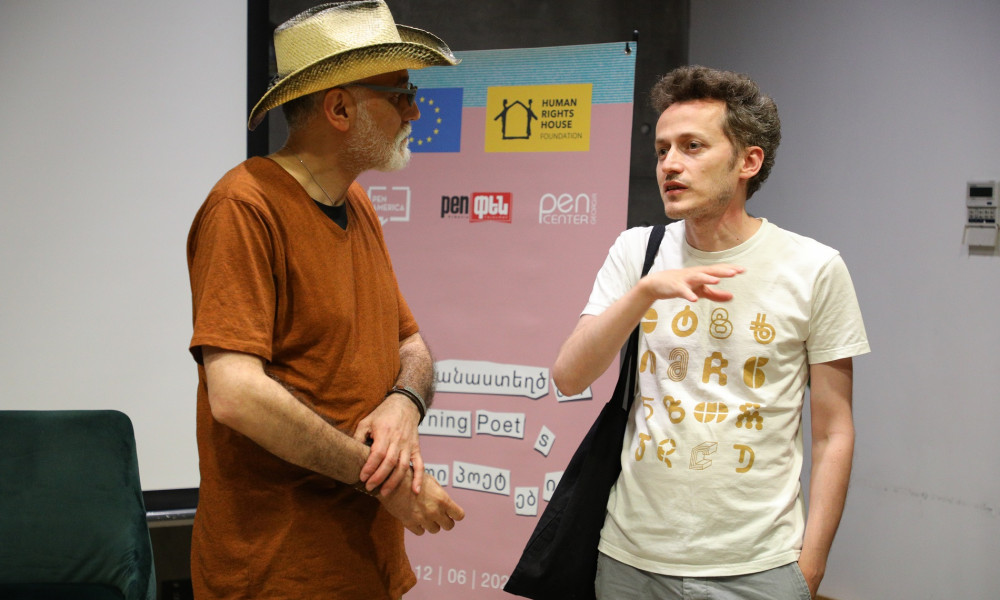As part of the events in the first phase of PoLitPEN, an alternative Armenian-Georgian dialogue developed, the objective of which was to elaborate an open discussion that went beyond the Soviet framework of “brotherhood of nations” and was free of all stereotypes.
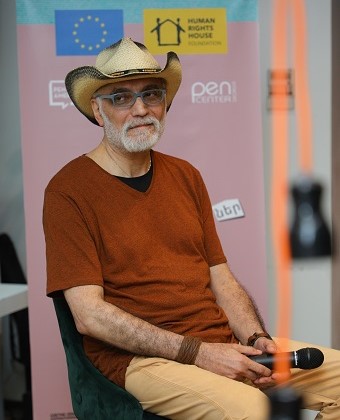 In that sense, the dialogue was launched from the very first evening of the event series – during the closing discussion on June 8, the occasion of which was Vahram Martirosyan’s novel Cotton Walls (the title is a reference to the Soviet-KGB era when “even the walls had ears” and everyone was subjected to eavesdropping). The moderator of the discussion was writer Gevorg Ter-Gabrielyan. The participants from Georgia had previously familiarized themselves with the novel, the more relevant sections of which had been translated into Georgian and published (translator – Asya Darbinyan).
In that sense, the dialogue was launched from the very first evening of the event series – during the closing discussion on June 8, the occasion of which was Vahram Martirosyan’s novel Cotton Walls (the title is a reference to the Soviet-KGB era when “even the walls had ears” and everyone was subjected to eavesdropping). The moderator of the discussion was writer Gevorg Ter-Gabrielyan. The participants from Georgia had previously familiarized themselves with the novel, the more relevant sections of which had been translated into Georgian and published (translator – Asya Darbinyan).
Gevorg Ter-Gabrielyan introduced Vahram Martirosyan’s Cotton Walls as an exemplary demonstration of how literature could provide new meaning to Armenian-Georgian relations, especially in the way that it presented the student movements resisting the policy of linguistic denial pursued by the Kremlin in the 1970s. The Armenian student protagonists of the novel go to Tbilisi and find like-minded individuals that are similarly surprised by the news that Moscow has decided that Russian should be the sole medium of instruction for specialized subjects in universities.
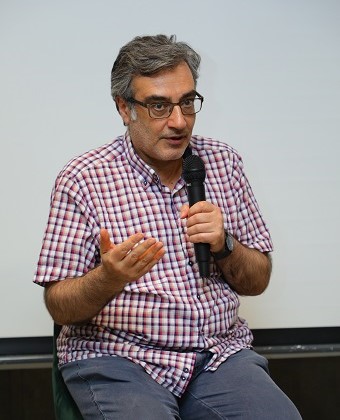 Vahram Martirosyan emphasized that the heroes of his novel had high regard for the Georgians’ efforts to resist the spread of Russian schools, and that they even had an argument with their classmate from Javakheti, saying that the Armenians of Tbilisi should not attend Russian schools even if a policy of Georgianization had been carried out against the Armenians in the years of Stalin’s totalitarianism.
Vahram Martirosyan emphasized that the heroes of his novel had high regard for the Georgians’ efforts to resist the spread of Russian schools, and that they even had an argument with their classmate from Javakheti, saying that the Armenians of Tbilisi should not attend Russian schools even if a policy of Georgianization had been carried out against the Armenians in the years of Stalin’s totalitarianism.
The Georgian writers expanded on the issues of linguistic policy and freedom of literary speech. They mentioned February 14, the national holiday dedicated to the Georgian language, which was marked as the day of the historic demonstration against Brezhnev’s attempts to remove Georgian as the state language in his draft constitution of 1978.
For both Armenians and Georgians, language is at the very core of their national identity and, in a certain way, both cultures are greatly dependent on language. Dissidents that arose in consistent conditions of colonialism were characterized by linguistic nationalism, which then created fertile grounds for ethnonationalism in the post-Soviet era.
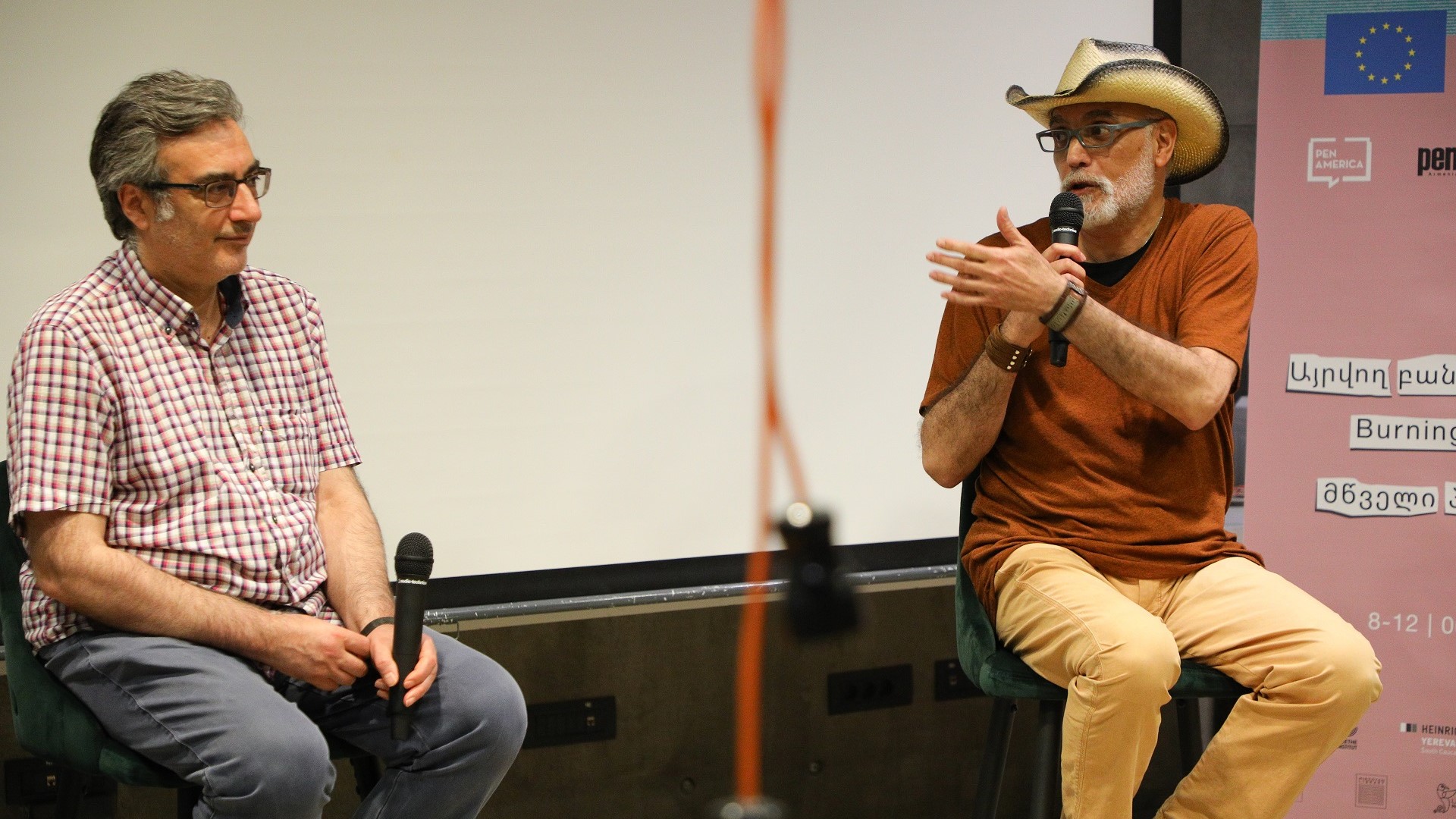
The days that followed saw a continuation of the discussion that focused on Armenian-Georgian cultural dialogue and gave it new meaning, including the experience of the era beyond Soviet times (see the article titled Polina Sadovskaya’s fantastic douqan).
During the Boell Talk event on June 11, PEN Armenia President Armen Ohanyan shared his thoughts on Armenian-Georgian dialogue and their current cultural relations, calling them “Mimino-esque” (a reference to the popular Soviet movie Mimino, where the dominant everyday narrative was of Armenian-Georgian “brotherhood”). He considered it very important for the dialogue launched by the first phase of PoLitPEN to be a practical step in overcoming this “Mimino-ism” and expressed hope that the dialogue would be a continuous one.
It is worth noting that this is the first occasion when the sister PEN centers functioning intermittently in Armenia and Georgia for 3 decades have implemented a program together, and the participants on both sides emphasized the importance of mutual discussions on the intertwined topics of linguistic and regional policy in the Armenian-Georgian context. As a reminder, linguistic policy and regional policy are among the four priority areas of PEN Armenia (see Annual Meeting 2022).


